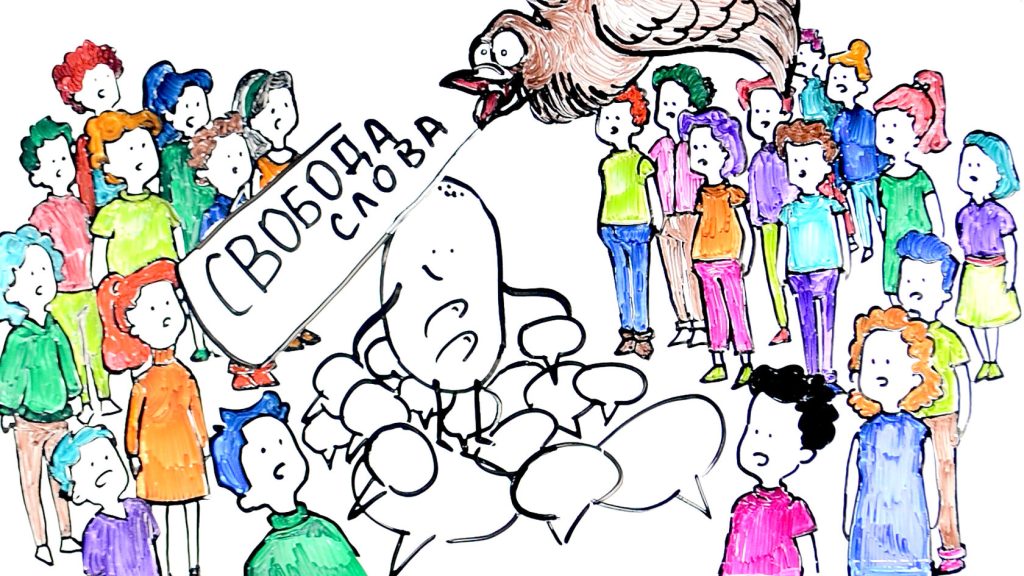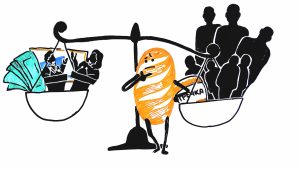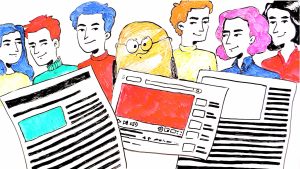Our society consists of people with different attitudes, values, skills, tastes, beliefs, and sexual orientations. We may believe in Jesus Christ, Allah, Buddha, or the spaghetti monster. Some do yoga, parkour, play squash, grill kebabs, or watch TV shows all day. But there is one thing we all have in common. We want to be happy, to live in safety and most of us want to enjoy the benefits of developed societies. We want to be free, to feel protected from arbitrariness and have the right to do what we love. We want justice. No one can guarantee us all of this at once, however, the states with a democratic system are more concerned about our freedom and rights than any other political regime.
Democracy and other political systems
Democracy is not as simple as it may seem at first glance. It is one of the most complex forms of state structure. It has a system of checks and balances that seeks to protect the rights of citizens regardless of their gender, origin, belief, or way of life. Democracy empowers the majority to govern and make decisions on behalf of, and in the interest of, all citizens. That is, with the opinion of the minority in mind. Winston Churchill said that “democracy is the worst form of government except for all those other forms that have been tried from time to time”. Dialogue, public discussion, the representation of the whole palette of opinions, compromises and unpopular decisions are all integral parts of democracy. Its specificity does not always allow for quick decisions, but it guarantees its citizens freedom, the protection of human rights and the opportunity for self-fulfillment. For a democratic system to work, several basic principles must be met. If one of them is removed, the state, society, and the rights of citizens become more vulnerable to external and internal threats.
Basic principles of democracy
The constitution
The set of the laws that guarantee the rights of citizens and protect them from the arbitrariness of the authorities. The constitution of the countries establishes the basic parameters of the work of state structures, the interaction between the center and the regions, the security and sovereignty of the country and its people.
Sovereignty
The independence of the people and the country, which makes it possible to conduct social, cultural, economic and foreign policy regardless of other states and their economic and political weight. The people remain the sole bearer of power. Sovereignty enables them to choose their own representatives and to empower them to govern the country.
The division of powers
The division of powers is the most important principle of checks and balances. An independent judiciary, a multi-party parliament, the presidency, and the alternation of authorities in fair and free elections safeguard the state from the establishment of a dictatorship.
Independent judiciary
An independent court is the guarantor of rights and freedoms – the right to life, private property, the ability to voice one’s opinions and express discontent at peaceful demonstrations and marches. The independent court plays a key role in resolving disputes between citizens, organizations, and businesses, and limits the power of the president and parliament.
Equal rights
Citizens of states must obey laws, pay taxes, and have the opportunity to exercise their rights in elections and referendums, in schools and universities, at work and at home, online and offline. Each of us can count on access to education and health care or freedom of movement. Citizens have rights regardless of gender, racial or ethnic origin, religion, disability, age or sexual orientation. Citizens are not denied their rights if they lead a lifestyle they like or express ideas that are alien to the traditions of the majority, as long as they don’t break any laws. And even if they break the law, citizens are not deprived of basic rights, although in some cases their liberty or voting rights may be restricted.
Pluralism
Pluralism in politics guarantees the existence of different parties, ideologies, movements, and groups that compete with each other. Pluralism in society facilitates the exchange of opinions, promotes debate, and allows one’s views and interests to be expressed.
Freedom of expression
Freedom of speech or expression is a value that mankind has walked toward for centuries through wars of independence, revolutions, and debates of philosophers. We are free to discuss new movies or political news with friends and family. We can post memes and comment on anyone’s tweets, read, organize performances or rallies. We can defend our interests in public city squares (freedom of assembly). We can express our indignation and our opinions about low wages, bad roads, dirty air in the city, or bribe-taking officials. At the same time, we have no right to resort to violence and must respect the rights and human dignity of others, even if we are not sympathetic to their views.
Elections
Elections are not merely a voting, but a long process. They include access to the media for all parties, fair registration of candidates, campaigning, debates and meetings with the electorate. Elections can only be free and fair. There are no other elections. If the opposition is prevented from going to the polls, voters are pressured, or dirty PR techniques are used, then it is manipulation and farce. Such “elections” are used by authoritarian rulers to hold on to the power in the country and to create the illusion of democracy.
Parliamentary majority
After elections a parliamentary majority forms the government, represents citizens, determines state policy, and distributes the money from the budget. This government majority can consist in some democratic countries of more than one elected political party and those parties then form a coalition.
Minority rights
A minority has the right to form an opposition to participate in political and public life. Including campaigning and participating in public debates outside the walls of parliament. Restrictions and pressure on the opposition, political persecution of competitors is a gross violation of democratic processes.
Local self-government
Local self-government is the foundation of modern democracies. Citizens can exercise their power in their village or neighborhood. Representatives of local self-government are elected by direct vote and represent the interests of citizens on issues of street improvement, road repair, social welfare, festivals and sports events.
Rule of law
The rule of law is the supremacy, that is, the absolute authority of the constitution and laws. Independent courts and other state agencies enforce the law and allow the public and citizens to exercise their rights and express their opinions at home, on the street, on social media or in the media. The rule-of-law state protects its citizens from actions that are justified by cultural traditions, morals, ideologies, religions or notions of certain social groups.
Media
The media do not just entertain us with reality shows and soap operas. Television, radio, the press, the internet, and social media are not only sources of information. A key function of the media is control. The media is called the “watchdog” that protects democracy and its citizens from violations of the law and arbitrariness. That is why it is sometimes called the “fourth power” of democracy. Censorship, pressure on journalists and limitation of their work are a gross violation of democratic processes.
Civil society
Civil society is an informal institution of power and represents the last key element of a democratic system of checks and balances. Non-governmental organizations, trade unions, and interest groups undertake public tasks, monitor and hold the government accountable. Political movements, human rights organizations, environmental activists, bloggers and professional associations are all part of civil society. A strong and active civil society promotes the stability of a democratic political system.
According to The Economist’s democracy index of 2019, about half of the countries in the world are democracies. They comply with all the above points. If the constitution is violated, a red light goes on in these countries, and everyone – the courts, the opposition, journalists, and civil society – do their best to restore the rule of law. The Scandinavian countries, Ireland and Canada are at the top of the list of democracies. At the other end of the spectrum are young democracies with developing institutions and authoritarian countries where basic democratic principles are not respected or are flagrantly violated. In authoritarian countries, electoral fraud can occur. Minorities may be restricted in their rights. Opposition, activists, and dissenters may be politically persecuted and journalists pressured. Courts are often under presidential control and citizens’ security is not guaranteed. The list of undemocratic countries is topped by Syria, Uzbekistan, the Democratic Republic of Congo and the Democratic People’s Republic of North Korea.
How do elections work in your country? Are all parties allowed to participate in elections? Can citizens and journalists express their opinions freely? Is there safety and security guaranteed for everyone?
Populists and autocrats often use the term democracy to mislead people and legitimize their absolute power. North Korea and Congo are called democracies even though they are classical dictatorships with rigid authoritarian regimes. For decades, dictators have kept the opposition out of elections, the countries have been subject to total censorship, and dissenters have been persecuted and tortured. Many authoritarian rulers came to power as a result of revolutions and military coups. Vladimir Ulyanov (Lenin) and Joseph Dzhugashvili (Stalin), for example, became leaders of the Soviet Union through armed seizures of government buildings, media, courts, and repression of dissenters. The victims of the Communist dictatorship were several million people who died as a result of purges during the Civil War, the Holodomor in Ukraine and the Volga region in the early 1930s, executions and exiles in the Gulag during the Stalinist and post-Stalinist times. The Soviet dictatorship lasted until the late 1980s. After Mikhail Gorbachev’s reforms, the abolition of censorship, and the first free elections, the communist regime fell. Many Soviet republics declared their independence, embraced democracy, and held their first national elections.
History shows that fair and free elections alone are not enough. In 1932, the National Socialist Party of Germany, led by Adolf Hitler, came to power after a fair victory in the Reichstag elections. The young German republic had no developed system of checks and balances.The court, media, and civil society were weak. The constitution was flawed and allowed power to be concentrated in the hands of one party. Through conspiracy and staged Reichstag arson, propaganda and manipulation of the special elections, Hitler imposed a state of emergency, restricted freedom of speech, seized a majority in parliament and placed all organs of power under his control. The victims of the National Socialist dictatorship were first political opponents, primarily communists and social democrats. The Nazis carried out crimes and genocide against millions of Jews, Roma, homosexuals, Soviet prisoners of war and civilians who were killed in World War II. But again, in 1932 most German citizens voted for the populists from the National Socialist Party of Germany out of their own free will.
Is democracy the power of the majority? This is the most common stereotype that has become firmly entrenched in the concept of democracy.
Indeed, in democracies, the source of political and state power is the majority. The party or candidate that gets more votes than other parties, usually more than 50%, in elections or after building coalitions has the power to pass laws and allocate budgetary money. However, in a functioning democracy, the power of the majority is far from unlimited. An opposition is essential, meaning that other political interests need to be represented in parliament. Security, freedom of speech and assembly, and the right of minorities to criticize the government are guaranteed regardless of the opinion of the majority. By delegating their interests to the opposition, by criticizing power publicly, minorities ensure that government policies are responsive to their demands. Nor do the results of elections determine the limitation of the power of officials, the police, the secret services, and the army, the prohibition of censorship, or the course of the next election. These are all basic principles of democracy. They cannot be questioned, even if the majority demands otherwise.





